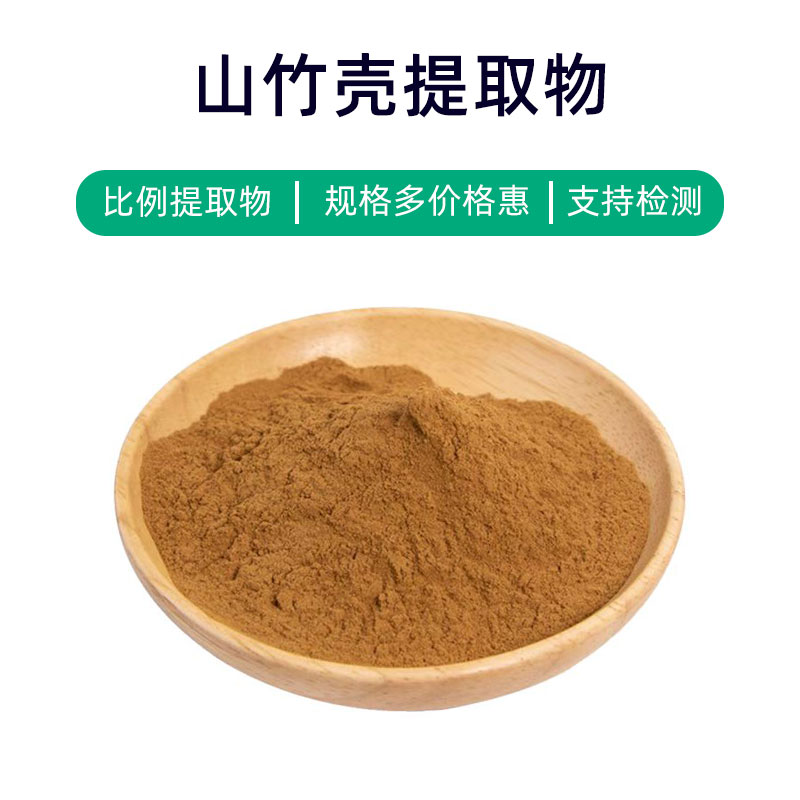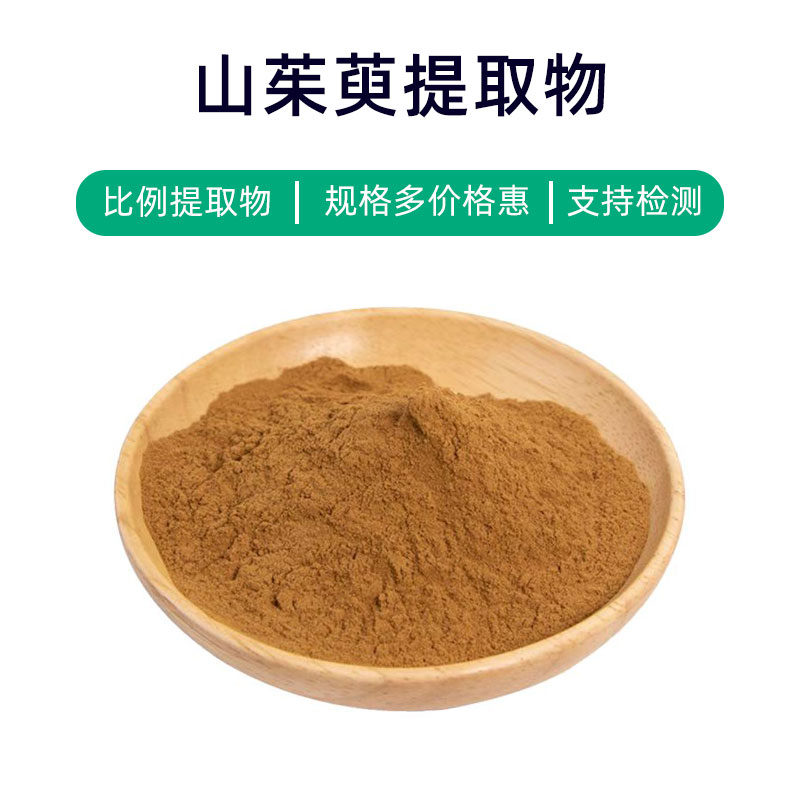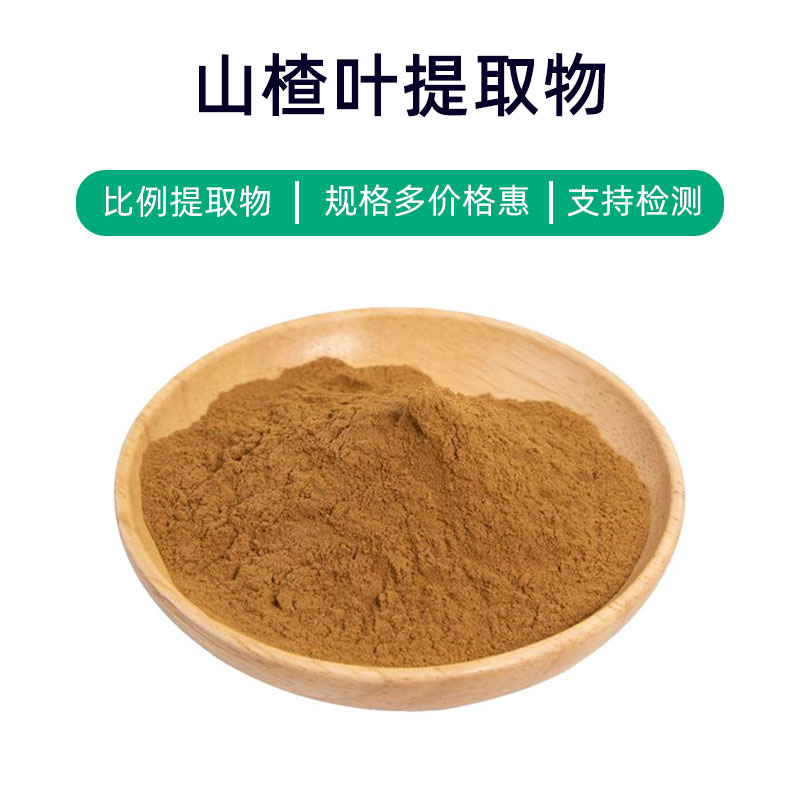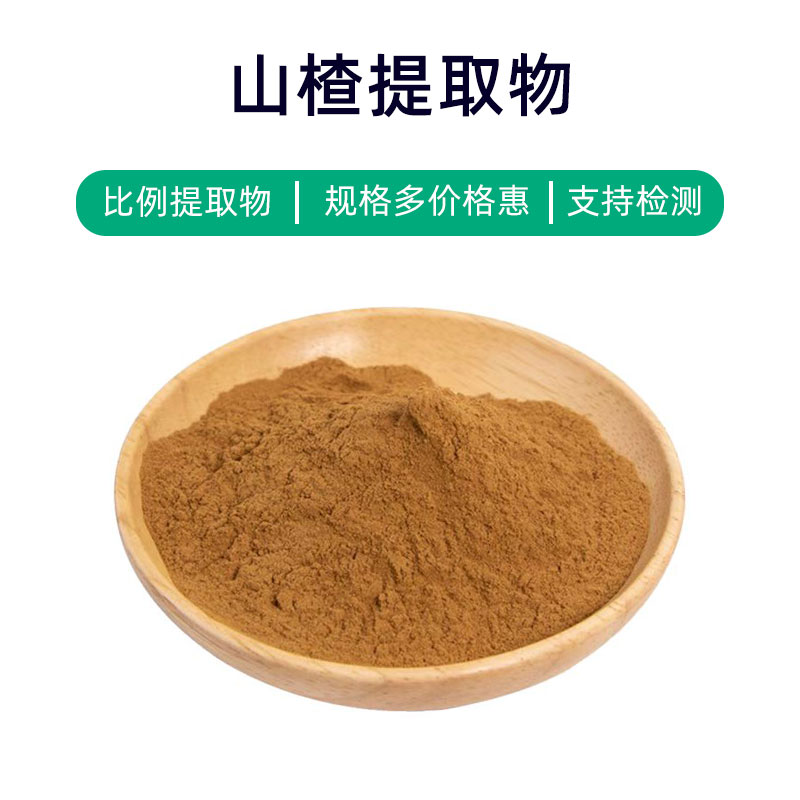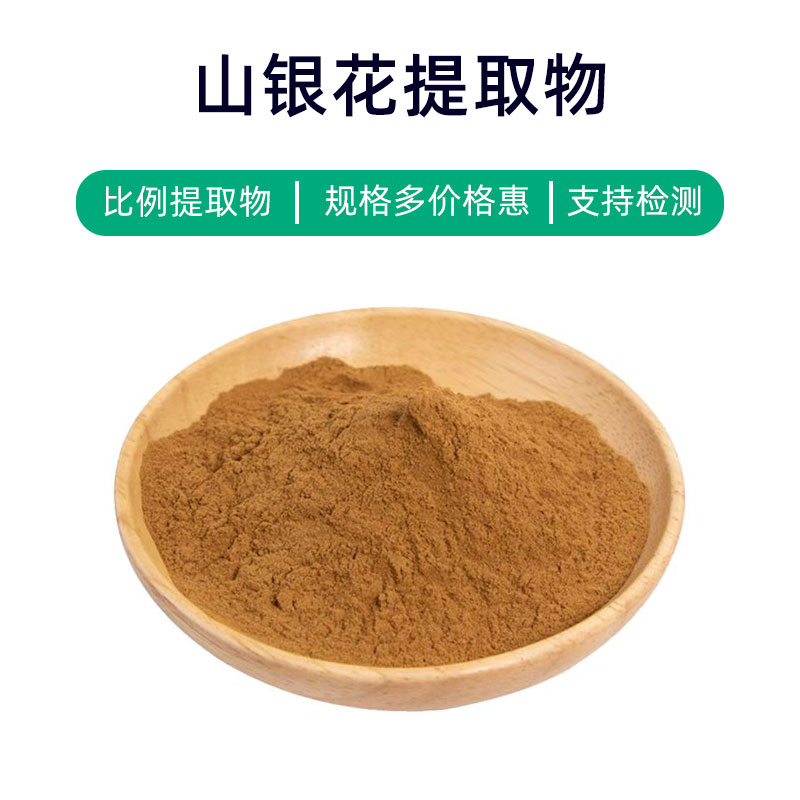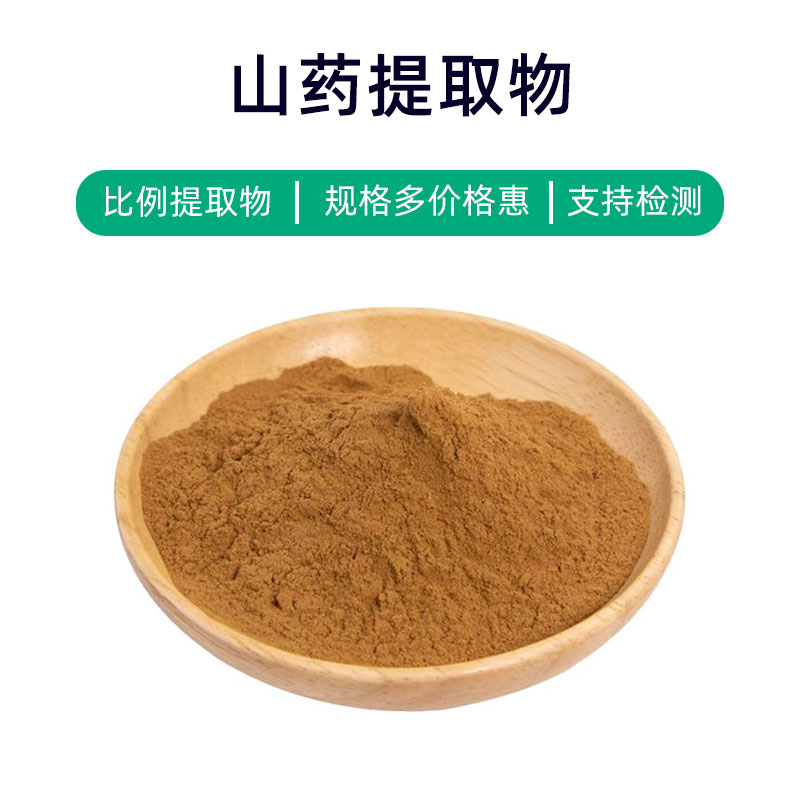Introduction to Mullein Flower Extract
Mullein flower extract is a natural plant extract sourced from Verbascum thapsus, with primary components including flavonoids, saponins, and polysaccharides. This extract is extensively utilized in pharmaceuticals, health supplements, cosmetics, and the food industry.
Its benefits are mainly reflected in the following areas:
- Antioxidant Effects: Mullein flower extract is rich in flavonoids, which possess antioxidant properties that help eliminate free radicals and protect cells from oxidative damage.
- Anti-inflammatory Effects: Research indicates that the active components in mullein flower extract can inhibit the release of inflammatory mediators, providing some level of anti-inflammatory action, useful for alleviating discomfort caused by inflammation.
- Antibacterial and Antiviral Properties: Mullein flower extract shows certain antibacterial and antiviral activities, helping to suppress the growth and reproduction of bacteria and viruses, contributing to the management of some infectious diseases.
In the pharmaceutical field, mullein flower extract is often used to formulate medicines, health supplements, or herbal remedies aimed at enhancing immune function, alleviating inflammation, and providing antioxidant benefits. In cosmetics, it is usually added to skincare products for soothing, anti-inflammatory, and antioxidant effects, improving skin condition. In the food industry, mullein flower extract can be used as a natural antioxidant, enhancing the shelf life and nutritional value of food products.
Production Process for Mullein Flower Extract
The production process for mullein flower extract typically includes the following key steps:
- Raw Material Preparation: Fresh mullein flowers are selected, preferably harvested when the flowers are fully open. After harvesting, they are cleaned and sorted to ensure purity and quality.
- Extraction Process: The cleaned mullein flowers are initially processed by chopping or grinding to enhance extraction efficiency. Suitable solvents (such as water or ethanol) are then used for extraction, employing methods such as maceration, heating reflux, or ultrasonic extraction to dissolve the effective components into the solvent.
- Filtration and Concentration: The extract undergoes filtration to remove solid impurities, followed by concentration via evaporation or reduced pressure to yield a concentrated solution.
- Precipitation and Separation: The concentrated solution is treated to precipitate impurities and proteins, often using hydrochloric acid or acetic acid. Afterward, centrifugation or filtration is used to separate the extract solution.
- Refinement and Purification: Further refinement and purification of the extract solution are carried out, commonly using techniques like gel filtration, column chromatography, or crystallization to enhance product purity and activity.
- Drying and Milling: The purified extract is dried, typically via spray drying or vacuum drying, to obtain a powdered form of mullein flower extract. This is then milled and screened to control particle size.
- Packaging and Storage: Finally, the extract is packaged, commonly in aluminum foil bags or sealed bottles, to ensure quality and stability. It should be stored in a dry, cool, and light-protected environment to prolong shelf life.
Effects and Side Effects of Mullein Flower Extract
Mullein flower extract is a plant extract known for its various effects and functions, including:
- Antioxidant Properties: Rich in natural antioxidants like flavonoids and polyphenols, it can neutralize free radicals, reducing oxidative stress damage to cells and slowing aging.
- Anti-inflammatory Effects: Studies indicate that mullein flower extract has significant anti-inflammatory activity, which can inhibit the release of inflammatory factors and alleviate inflammatory responses, helpful for conditions related to inflammation.
- Cardiovascular Protection: Active components in mullein flower extract exhibit effects like lowering blood pressure and lipids, and inhibiting platelet aggregation, contributing to the prevention of cardiovascular diseases and protecting heart health.
- Immune Function Improvement: Certain components in mullein flower extract enhance immune response, boosting the body's immune function to better resist foreign pathogens.
- Antibacterial and Antiviral Effects: Research shows that mullein flower extract can inhibit various bacteria and viruses, aiding in the prevention and treatment of infectious diseases.
- Antitumor Effects: Some studies indicate that active components within mullein flower extract may possess antitumor activity, helping to inhibit tumor cell proliferation and metastasis, supporting the prevention and treatment of certain types of tumors.
Generally considered safe, mullein flower extract is a natural plant extract; however, individual variability and potential allergies should be noted. Prolonged high-dose use may lead to digestive upset or allergic reactions, so it's advisable to consult a physician or pharmacist before use, adhering to recommended dosages on product labels or professional advice. Caution is particularly warranted for pregnant women, breastfeeding individuals, and children, who should consult a doctor before use.
Application Scenarios and Dosage of Mullein Flower Extract
Mullein flower extract has wide applications in pharmaceuticals, food, and cosmetics, with the following scenarios detailed for each field:
- Pharmaceutical Field:
- Mullein flower extract is often used in traditional herbal formulations to treat symptoms such as colds, coughs, and fever.
- In traditional Chinese medicine, it is believed to clear heat, detoxify, and reduce swelling, frequently used for moisture-related illnesses and edema.
- Dosage: Typically, mullein flower extract can be prepared as a decoction or in powdered form for consumption; it may also be used externally in ointments or tinctures. Dosage should follow physician or pharmacist recommendations.
- Food Field:
- Mullein flower extract often serves as a natural food additive, enhancing flavor or improving the nutritional aspects of food products.
- Its applications are common in beverages, health supplements, candies, and alcoholic drinks, providing natural color, fragrance, and nutritional content.
- Dosage: The amount of mullein flower extract added to food must comply with product formulations and regulatory guidelines, typically controlled according to manufacturing practices and safety standards.
- Cosmetic Field:
- Mullein flower extract is frequently included in cosmetics due to its antioxidant, soothing, and moisturizing properties, suitable for all skin types.
- Commonly found in skincare products, masks, shampoos, and conditioners, it helps improve skin condition and enhances hair health.
- Dosage: The amount of mullein flower extract in cosmetics is generally based on formulation requirements, advised to follow product instructions or professional recommendations.
Overall, as a natural plant extract, mullein flower extract holds significant application prospects across pharmaceuticals, foods, and cosmetics. Users should select appropriate products and dosages based on specific situations, adhering to relevant regulations and safety standards.
Overview of Mullein Plant Source, Distribution, and Growing Environment
Mullein (scientific name: Salvia miltiorrhiza), also known as Danshen or red sage, is a perennial herb belonging to the Lamiaceae family. Below is an overview of its plant source, distribution, and growth environment:
- Plant Source:
Mullein is native to China and is one of the traditional Chinese medicinal herbs. Its roots and stems have medicinal value, serving as important ingredient in Chinese medicine formulations and health products. Due to its medicinal and economic value, mullein is widely cultivated. - Distribution:
Mullein is primarily found in the Yangtze River basin and southern regions of China, including Shaanxi, Gansu, Henan, Hebei, Shanxi, Hubei, Hunan, Sichuan, Jiangsu, Zhejiang, Anhui, Shandong, Guangdong, and Guangxi. Given suitable climate and soil conditions, it can also grow and reproduce in other regions. - Growth Environment:
Mullein thrives in warm, humid environments, with an ideal growth temperature of 15℃ to 25℃. It requires ample sunlight but can also adapt to semi-shaded conditions. While its soil requirements are not strict, it prefers loose, fertile, well-drained loamy soils. A pH level that is neutral to slightly alkaline is more conducive for its growth.
Under these suitable conditions, mullein can grow well, maintaining a high content of medicinal components and providing a stable source for traditional Chinese medicine. Due to its growth environment and distribution characteristics, mullein has also been introduced to other countries for cultivation and research, addressing its demand in medicinal and health product sectors.
Processing and Storage of Mullein Flower Extract
The processing of mullein flower extract mainly involves the following steps: First, harvested mullein flowers are cleaned and air-dried to remove impurities and moisture; next, they are pulverized or cut for easier extraction of effective compounds; then, appropriate extraction methods such as water or alcohol extraction are employed to extract the active components from the mullein flowers; finally, through concentration, filtration, and drying processes, the final product of mullein flower extract is obtained.
For storage, mullein flower extract should be kept in a cool, dry, and well-ventilated environment, avoiding direct sunlight and high temperatures. The extract should be sealed to prevent moisture and oxygen contact, slowing down oxidation reactions. Additionally, regular checks on the extract’s quality and condition should be conducted to ensure consistent quality. Generally, suitable storage conditions can help maintain the stability of the active components and medicinal efficacy of mullein flower extract over time.
Monica Sun is a seasoned expert in the plant extraction industry with over a decade of experience in research and production. She specializes in the extraction and purification of plant active ingredients, focusing on driving innovation in natural product applications. Monica has participated in the development of multiple functional plant extracts, delivering high-value natural raw material solutions for the health food, pharmaceutical, and dietary supplement sectors.









